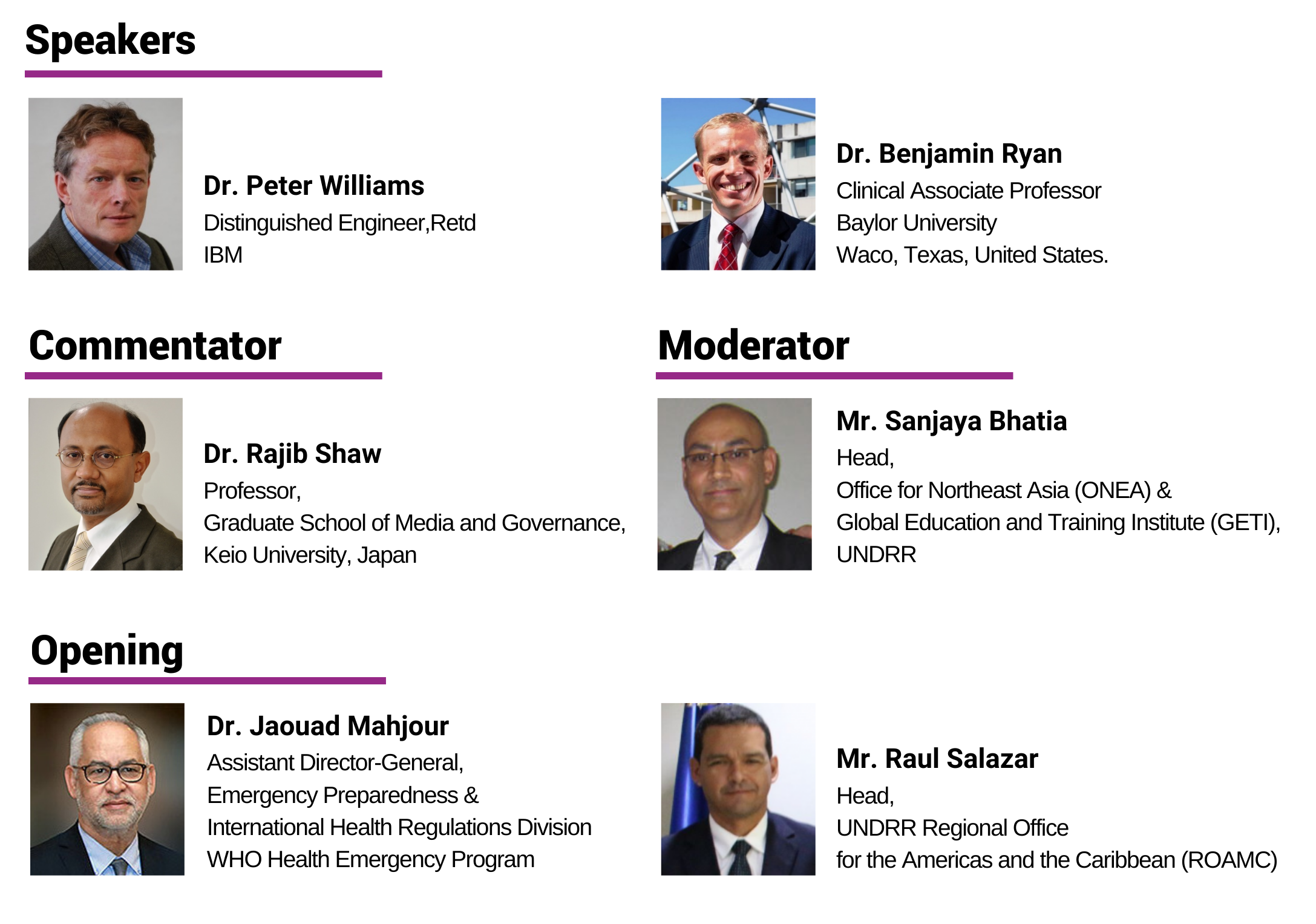UNDRR GETI and WHO Webinar - Resilience of local governments: A multi-sectoral approach to integrate public health and disaster risk management

Background
“Preparation saves lives”. The capacity of public health systems is crucial to reduce the impact of pandemics, as clearly discussed in the practical experience from countries like P.R. China and the Republic of Korea. Experience from past epidemics and the current COVID19 pandemic demonstrates how important it is to break down silos between disaster managers, health workers, and other sectors. Ms. Mami Mizutori, the UN Secretary-General’s Special Representative for Disaster Risk Reduction and head of the UN Office for Disaster Risk Reduction (UNDRR) urged national and local disaster management agencies to include health emergencies in the discussion on disasters, as a top priority, alongside earthquakes, floods, storms, and other natural hazards. Governments must prioritize resilient health systems.
Promoting systematic integration of health into national and sub-national disaster risk reduction policies and plans is a key recommendation of the “Bangkok Principles for the implementation of the health aspects of the Sendai Framework for Disaster Risk Reduction 2015-2030”. The Health Emergency and Disaster Risk Management Framework (HEDRM) of the World Health Organization is the overarching framework. The public health addendum of the Disaster Resilience Scorecard for Cities is a tool designed for use by local governments to enhance resilience, as guided by the HEDRM Framework.
Objective
The webinar covers aspects of public health systems in the Making Cities Resilient Campaign tool – the Disaster Resilience Scorecard for Cities. The focus is on how the scorecard promotes a broad multi-sectoral approach to handling disaster risk reduction, including for public health emergencies.
Key questions to be addressed:
- How can public health aspects be integrated into disaster risk reduction and resilience planning?
- What is the Public Health Addendum of the Disaster Resilience Scorecard for Cities and how can this tool support strengthen planning and coordination among disaster managers and health workers?
Webinar Recording:
Guest Speakers:
- Dr. Peter Williams, IBM Distinguished Engineer, Retd.
- Dr. Benjamin Ryan, Clinical Associate Professor at Baylor University in Waco, Texas, United States.
Commentator:
- Dr. Rajib Shaw, Professor Graduate School of Media and Governance, Keio University, Japan.
Opening:
- Dr. Jaouad Mahjour, Regional Director for the Eastern Mediterranean a.i., WHO
- Mr. Raul Salazar, Head, UNDRR Regional Office for the Americas and the Caribbean (ROAMC)
Moderator:
- Mr. Sanjaya Bhatia, Head, UNDRR Office for Northeast Asia (ONEA) & Global Education and Training Institute (GETI)
Date
07 April 2020, Tuesday
Time
06:00 Pacific Time (US and Canada) ; 08:00 Panama ; 09:00 New York ;14:00 London ; 15:00 Geneva ; 20:00 Bangkok ; 22:00 Korea
Language
English & Spanish (interpretation provided)
For more information:
Sanjaya Bhatia and Mutarika Pruksapong, UNDRR ONEA & GETI at undrr-incheon@un.org

with funding support from:

Editors' recommendations
Explore further
Also featured on
Is this page useful?
Yes No Report an issue on this pageThank you. If you have 2 minutes, we would benefit from additional feedback (link opens in a new window).